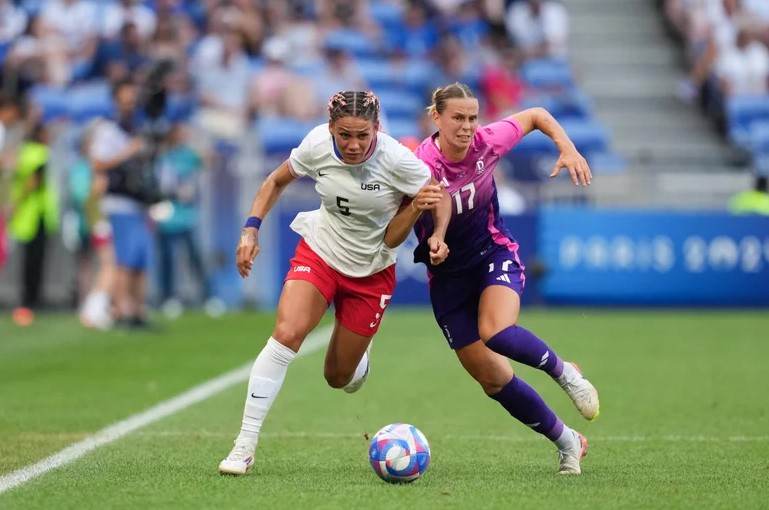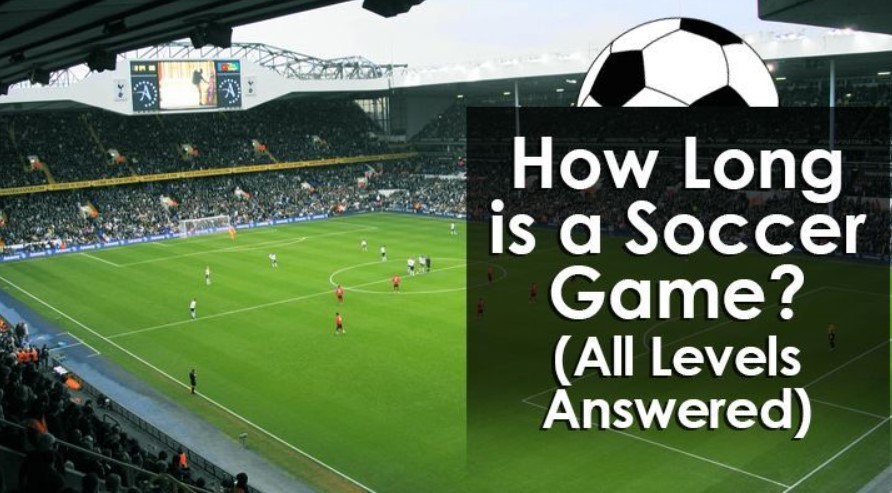Soccer, or football as it’s known in many parts of the world, is one of the most popular sports on the planet. Whether you’re watching the FIFA World Cup or your local team, one of the most common questions people have is, “How long is a soccer game?” The answer may seem simple, but there are several nuances to the duration of a match that can change depending on the level of play, rules, and whether there’s extra time involved. This article will provide a clear and comprehensive guide to understanding how long a soccer game lasts, using expert knowledge and authoritative information to ensure accuracy.
The Standard Length of a Professional Soccer Game
A professional soccer game typically lasts 90 minutes. This time is divided into two halves, each lasting 45 minutes. Between the two halves, there is a 15-minute halftime break where players can rest, rehydrate, and strategize for the second half. This structure applies to major soccer leagues around the world, such as the English Premier League, La Liga, and FIFA tournaments like the World Cup.
Breakdown of the Time in a Soccer Match
To answer how long is a soccer match in more detail, let’s break down the time elements:
- First half: 45 minutes
- Halftime: 15 minutes
- Second half: 45 minutes This gives you a total match duration of around 105 minutes, including halftime.
However, the clock doesn’t always stop here. Soccer matches frequently extend beyond the standard 90 minutes due to stoppage time, extra time, and, in rare cases, penalty shootouts.

What Is Stoppage Time in Soccer?
Stoppage time, also known as injury time, is additional time added at the end of each half. Referees use this to account for interruptions in play, such as injuries, substitutions, and other delays. Stoppage time can range from one to five minutes per half, although more extreme cases can see 8-10 minutes added on.
In a typical game, stoppage time makes a match last between 92 to 95 minutes, depending on the referee’s decision. This time is added at the end of each half, meaning stoppage time is not played during halftime.
Extra Time and Overtime Rules in Soccer
In knockout stages of tournaments like the FIFA World Cup or UEFA Champions League, a match can go beyond the regular 90 minutes if the game is tied. In such cases, extra time comes into play.
How long is extra time in soccer? Extra time consists of two additional 15-minute halves, making it a total of 30 minutes added to the game. If the score remains tied after extra time, a penalty shootout may be used to determine the winner.
Here’s a breakdown of a match that goes into extra time:
- First half: 45 minutes
- Halftime: 15 minutes
- Second half: 45 minutes
- Extra time, first half: 15 minutes
- Extra time, second half: 15 minutes
- Penalties (if necessary): Can take up to 10 minutes
In this case, the total length of the match can range from 120 minutes to 130 minutes, depending on stoppage time and penalties.
How Long Is a FIFA Soccer Game?
A FIFA-regulated soccer match follows the same rules as a professional game, with a total match time of 90 minutes plus stoppage time. However, FIFA competitions like the World Cup often have more at stake, which means there’s a higher chance of games going into extra time or penalties, especially in knockout rounds.
During these high-stakes matches, the intensity often leads to significant stoppage time and even the need for extra time or penalties, making these games last well over two hours.
Youth Soccer Game Duration
The length of a youth soccer game depends on the age group. Youth leagues shorten game durations to accommodate the endurance levels of younger players. Here’s a general guideline for different age groups:
- Under 6 years old (U6): Games last 20 minutes, divided into two 10-minute halves.
- Under 8 years old (U8): Games last 40 minutes, divided into two 20-minute halves.
- Under 10 years old (U10): Games last 50 minutes, divided into two 25-minute halves.
- Under 12 years old (U12): Games last 60 minutes, divided into two 30-minute halves.
- Under 14 years old (U14): Games last 70 minutes, divided into two 35-minute halves.
For youth games, there is usually less stoppage time, and there is no extra time or penalties unless it’s part of a special tournament format.
Frequently Asked Questions (FAQs)
How long is a soccer game including stoppage time?
A typical soccer game lasts between 92 and 100 minutes, depending on how much stoppage time is added. Stoppage time generally ranges between 1 to 5 minutes per half but can be longer in certain situations, such as injuries or extended VAR reviews.
Can a soccer game end in a tie?
Yes, a soccer game can end in a tie, especially in league play. However, in knockout stages of tournaments, the game may go into extra time or penalty shootouts if a winner must be determined.
How long is a high school soccer game?
In most high school soccer leagues, the games last for 80 minutes, divided into two 40-minute halves with a 10-minute halftime break.
What is the shortest soccer match?
While an official match cannot be shorter than its designated time, friendly matches or amateur leagues sometimes shorten the game’s length, such as 60 or 70-minute games. However, in professional settings, even injury-abandoned matches usually get rescheduled rather than finished early.
How long is a soccer game on TV?
When watching a soccer match on TV, the broadcast typically lasts between 2 to 2.5 hours, taking into account pre-game analysis, halftime shows, and potential extra time or penalties.
Conclusion
To sum it up, a standard soccer game lasts 90 minutes, divided into two halves of 45 minutes each, with an additional 15-minute halftime. However, with stoppage time, the game can extend to around 95 minutes or longer. In tournament settings, if the game is tied, it may go into extra time and even penalties, extending the duration to over 120 minutes.
Whether you’re watching a casual weekend game or a high-stakes World Cup final, understanding the breakdown of soccer match time gives you a clearer view of the game’s rhythm and structure. Soccer may seem simple, but the timing intricacies add layers of excitement and unpredictability that make the sport so beloved worldwide.
By understanding the different aspects of soccer’s timing, fans and players alike can appreciate the strategic nature of the game and enjoy every second to the fullest.
Also Read,




